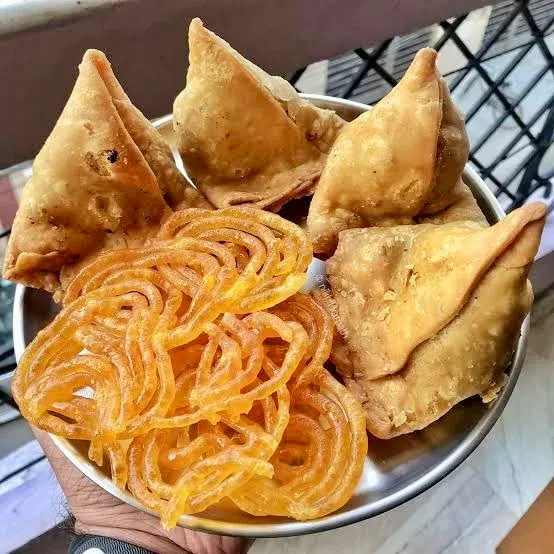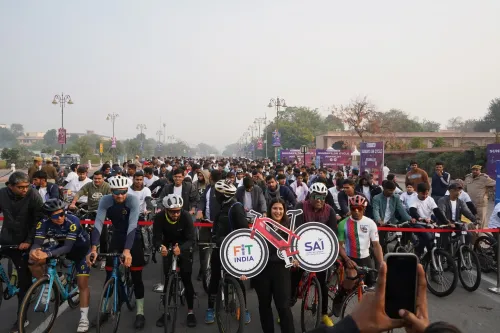Could Warning Boards for Samosas & Jalebis Help Combat Obesity in India?

Synopsis
Key Takeaways
- Health Ministry mandates warning boards in canteens.
- Boards highlight sugar and fat content in popular snacks.
- Initiative aims to combat obesity and promote the Fit India campaign.
- Public awareness is crucial for healthier eating.
- Aligns with global nutrition goals and fights NCDs.
New Delhi, July 14 (NationPress) The directive from the Health Ministry to display oil and sugar warning boards in all government canteens and restaurants regarding the sugar, fat, and oil content in samosas and jalebis marks a significant move to combat the rising obesity rates and enhance the Fit India initiative, stated health professionals on Monday.
The health ministry has mandated that all central institutions implement “oil and sugar boards” akin to the warnings seen on cigarette packages. These informative displays will showcase the detrimental effects of the sugar and oil content found in popular food items, such as samosas, kachoris, pizzas, pakoras, banana chips, burgers, soft drinks, and chocolate pastries.
Additionally, the boards will illustrate the impacts of these foods on the human body while providing the recommended daily intake limits for fat and sugar.
“These vibrant posters will reveal the hidden sugar and oil content in our daily breakfast,” remarked cardiologist Dr. Amar Amle from Nagpur, during an interview with IANS.
“Obesity has silently emerged as an epidemic, with projections estimating an increase to 449 million by 2050. Therefore, this government initiative is laudable and will aid in curbing obesity. The warning boards serve a purpose similar to those associated with cigarettes and tobacco,” Dr. Amle noted.
“The intent is for individuals to become conscious of their health; they should be aware of the sugar, oil, and fat content in the samosas and jalebis they consume,” he added, stating that this initiative aligns with Prime Minister Narendra Modi’s Fit India campaign, fostering a healthier nation.
MP Milind Deora highlighted on the social media platform X that the Parliamentary Subordinate Legislation Committee is currently assessing the food regulator FSSAI’s strategies to address the escalating obesity crisis in India.
“We have unanimously proposed standardized regulations across all food sectors, including alcohol, to ensure that Indian cuisine is not disproportionately targeted while multinational corporations continue to promote Western junk food without restriction,” Deora stated.
Previously, in May, the Central Board of Secondary Education (CBSE) instructed schools to set up “sugar boards” within educational institutions. Health professionals noted that this public health initiative also corresponds with global nutrition objectives and will assist India in combating the challenges posed by non-communicable diseases (NCDs) like diabetes, hypertension, heart disease, stroke, and certain cancers.
Rajeev Jayadevan, Convener of the Research Cell at Kerala State IMA, informed IANS that the excessive intake of sugar and oil, coupled with insufficient physical activity, significantly contributes to obesity and NCDs.
“Early education on nutrition is essential. By providing clear labeling and dietary guidance in schools, we empower children to make healthier dietary selections before chronic diseases develop,” Jayadevan emphasized.










